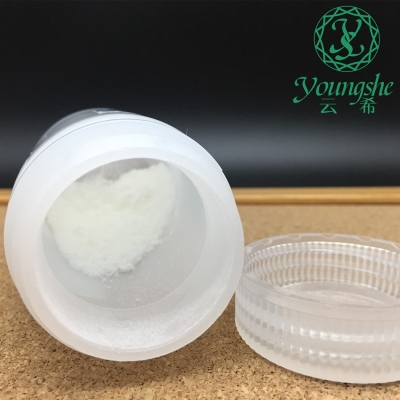-
Categories
-
Pharmaceutical Intermediates
-
Active Pharmaceutical Ingredients
-
Food Additives
- Industrial Coatings
- Agrochemicals
- Dyes and Pigments
- Surfactant
- Flavors and Fragrances
- Chemical Reagents
- Catalyst and Auxiliary
- Natural Products
- Inorganic Chemistry
-
Organic Chemistry
-
Biochemical Engineering
- Analytical Chemistry
- Cosmetic Ingredient
-
Pharmaceutical Intermediates
Promotion
ECHEMI Mall
Wholesale
Weekly Price
Exhibition
News
-
Trade Service
pixabay
pixabayThere are several different ways of intermittent fasting: eating only at certain times of the day, not eating at all on certain days, or drastically reducing calorie intake during several days of the week
If the eating behavior is restricted to a certain fixed time period of the day, there is no need to restrict calories
The comparison between intermittent fasting and calorie restriction is a debate about which is healthier, "better" or more successful in achieving weight loss goals
Intermittent fasting is "better" than calorie restriction may mean that it is more than just fat loss
More importantly, we do not yet fully understand the long-term effects of intermittent fasting
But after all, humans are different from these experimental animals
So where can I find the answers to the above questions? We need to analyze it carefully
Calorie restriction is the act of reducing your daily calorie intake to below average levels while still getting the nutrients your body needs
Lancet Diabetes Cholesterol
Restricting calorie intake will improve overall heart and metabolism indicators
Restricting calorie intake will improve overall heart and metabolism indicators2 years of calorie restriction and cardiometabolic risk (CALERIE): exploratory outcomes of a multicentre, phase 2, randomised controlled trial.
2 years of calorie restriction and cardiometabolic risk (CALERIE): exploratory outcomes of a multicentre, phase 2, randomised controlled trial.
- 16:8 (no food for 16 hours, food for 8 hours);
- 5:2 (5 days of normal diet, 2 days of fasting or intake of very few calories);
- Fasting every other day or regularly, and occasionally continuous fasting
This conversion to the cells of our body brought a slight bio-energy nutritional deficiencies challenges, and this stress appears to have reduced inflammation, improve memory, help with diabetes management role
managementFor example, a new study published on "Nature Molecular Psychiatry" on May 25 found that compared with mice that follow a restrictive diet (10% calorie restriction) and eat as much as they want, banned every other day The eating mice seem to have better memory
The mice that fasted every other day performed better in the maze test than the mice that consumed 10% less calories per day, and the only difference in their diet was time (intermittently fasted mice ended up taking 10% less in total).
Learning and memory abilities of mice receiving different dietary regimens: casual (AL), 10% calorie restriction (CR), and intermittent fasting (IF)
Learning and memory abilities of mice receiving different dietary regimens: casual (AL), 10% calorie restriction (CR), and intermittent fasting (IF)Intermittent fasting enhances long-term memory consolidation, adult hippocampal neurogenesis, and expression of longevity gene Klotho.
Intermittent fasting enhances long-term memory consolidation, adult hippocampal neurogenesis, and expression of longevity gene Klotho.Seeing this, we will feel that compared to calorie restriction, intermittent fasting seems to be more able to reduce the symptoms of Alzheimer's disease or promote other brain functions, although this is only an animal experiment
.
And general research shows that in obese people, these two diets can reduce body fat and improve blood pressure and cholesterol levels
.
This means that both intermittent fasting and calorie restriction may be good choices, and intermittent fasting is more "successful" because it is easier for people to do
.However, in fact, in some people, there is no real difference between the two, and intermittent eating is even "worse
.
"A study published on JAMA Network in 2018 compared intermittent fasting and calorie restriction on blood sugar control in patients with type 2 diabetes, and found that the former had no observed advantages
JAMA
.
Intermittent fasting people adopt a 2-day low-calorie intake and 5-day unrestricted regular diet plan, much like the popular "5:2" plan mentioned above, while calorie restrictors consume 1200-1500 calories per day
.doi: 10.
doi: 10.
1001/jamanetworkopen.
2018.
0756
1001/jamanetworkopen.
2018.
0756Another study published in JAMA Internal Medicine in 2018 looked at obese but healthy adults and found that fasting every other day has no advantage in losing weight or improving heart health indicators than restricting calories
.doi:10.
doi:10.
1001/jamainternmed.
2017.
0936.
1001/jamainternmed.
2017.
0936.At the same time, a new study published in Science Translational Medicine on June 16 specifically examined whether intermittent fasting provides health benefits for “thin people” compared to daily calorie restriction.
.
As a result, the research team found that the effect of fasting every other day was poor, and that intermittent fasting was "nothing special"
.DOI: 10.
DOI: 10.
1126/scitranslmed.
abd8034
1126/scitranslmed.
abd8034The trial was organized by a team from the Centre for Nutrition, Exercise and Metabolism (CNEM) at the University of Bath in the UK.
Participants were assigned to three groups
.- Group 1: Fasting every other day, after the fasting day, eat 50% more than usual
. - Group 2: Reduce 25% of calories in all meals every day
. - Group 3: Fasting every other day (the method is the same as the first group), but one day after the fasting day, eat 100% more than usual
.
- Group 1: Fasting every other day, after the fasting day, eat 50% more than usual
- Group 1: Fasting every other day, after the fasting day, eat 50% more than usual
. - Group 2: Reduce 25% of calories in all meals every day
. - Group 3: Fasting every other day (the method is the same as the first group), but one day after the fasting day, eat 100% more than usual
.
After observation, the researchers found that the calorie restriction group (group 2) lost 1.
9 kg in just three weeks.
Scans showed that the weight loss was entirely due to the decrease in body fat
.
In contrast, the first group fasted every other day, ate 50% more on non-fasting days, experienced the same calorie intake reduction, and lost almost 1.
6 kg of weight.
Half of this weight loss was due to fat.
Decrease, the remaining decrease is muscle mass
.
This shows that for healthy adults, continuing daily calorie restriction can lead to significant weight loss, and the use of intermittent fasting to reduce the amount of fat less effective, and there is no evidence that fasting on metabolic regulation or heart blood vessel health Has a specific impact
.
This also means that when you use intermittent fasting to reduce fat mass and improve health indicators such as blood pressure, cholesterol, and diabetes, science cannot determine whether it is superior
.
In summary, the evidence suggests that in large studies with longer durations, intermittent eating has minimal improvement in body weight and/or metabolic health compared to other diets
.
Perhaps for most people, intermittent eating should be stopped
.
Leave a message here







